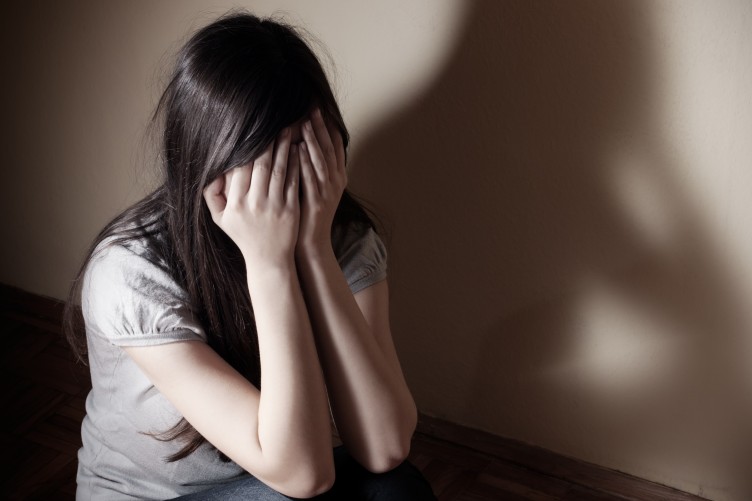<p style="text-align: justify;">People who are abnormally afraid of sexual abuse have a condition called agraphobia. These people are called agraphobics. Agraphobia is sometimes called contreltophobix. Researchers say that agoraphobia, a type of situational or social phobia, is quite common but the cause is currently unknown.</p>
<p style="text-align: justify;">Although agraphobia sounds similar to “agoraphobia,” the two conditions are quite different. Severe agoraphobics may be afraid to leave their homes because of concerns about sexual abuse or attack. An agoraphobic is often afraid to leave their home because of uncertainty or an inability to manage the external world.</p>
<p style="text-align: justify;">People over the age of 14 are more likely to suffer symptoms of agraphobia than young children. According to the Centers for Disease Control &; Prevention, more than 200,000 cases of agraphobia occur every year. Click here to learn more.</p>
<h2 style="text-align: justify;">Why Do People Develop Agraphobia?</h2>
<p style="text-align: justify;">There are several theories about why some people develop agraphobia:</p>
<p style="text-align: justify;">• Perhaps the individual suffered emotional trauma resulting from a triggering event, such as sexual abuse as a child. Even if he or she doesn’t consciously remember the event, it’s possible for him or her to have deep fears about sexual abuse.</p>
<p style="text-align: justify;">• The individual may have several complex social fears that cause him or her to suffer from agraphobia.</p>
<p style="text-align: justify;">• Another theory is that the individual didn’t actually happen to him or her. Watching the news or movies about sexual abuse can cause the person to develop intense fears about being sexually abused.</p>
<p style="text-align: justify;">• An individual may become agraphobic because of misinformation. A careless investigator or researcher may publish information that overstates an individual’s likelihood of experiencing sexual abuse.</p>
<p style="text-align: justify;">• The individual’s heredity or specific brain chemistry may predispose him or her to phobias.</p>
<h2 style="text-align: justify;">What Are the Symptoms of Agraphobia?</h2>
<p style="text-align: justify;">An individual’s symptoms can help a licensed psychotherapist diagnose agraphobia. Most other phobias cause anxiety, and agraphobia typically causes the sufferer to feel like it’s difficult to breathe. He or she may feel nauseated, dizzy, or “out of control.”</p>
<p style="text-align: justify;"><strong>Additional symptoms may include:</strong></p>
<p style="text-align: justify;">• Fears of a public or private sexual attack</p>
<p style="text-align: justify;">• Dry mouth</p>
<p style="text-align: justify;">• Bed wetting</p>
<p style="text-align: justify;">• Sleep problems resulting from fears of sexual abuse</p>
<p style="text-align: justify;">• Sexual problems with an intimate loved partner</p>
<p style="text-align: justify;">• Relationship problems, even non-sexual relationships</p>
<p style="text-align: justify;">• Tachycardia (rapid heartbeat)</p>
<p style="text-align: justify;">• Fear of any type of intimacy</p>
<p style="text-align: justify;">• Perspiration, excessive shaking or trembling</p>
<p style="text-align: justify;">• Panic or anxiety attacks</p>
<p style="text-align: justify;">An agraphobic individual may be afraid to stay late at the office. He or she may fear a sexual attack at night or during the day. However, an agraphobic worker might not want to work in close proximity with others. He or she may prefer a job performed alone. If the condition is disabling, he or she may require special accommodations to perform a job. A panic attack can happen in a crowded place, like a retail environment, or in an enclosed space, like an elevator.</p>
<p style="text-align: justify;">At home, the agraphobic person may lock doors, or add double locks to the doors, and still have fears of sexual abuse or attack. Close relationships with others may be difficult. The agraphobic may have sleep problems because anxiety and fear keep him or her on high alert.</p>
<p style="text-align: justify;">The adult agraphobic may have excessive, obsessive concerns about children and sexual abuse. Even if the sufferer isn’t a parent, he or she might demonstrate excessive worry about protecting a visitor’s child from sexual attack or abuse.</p>
<h2 style="text-align: justify;">Are There Treatments for Agraphobia?</h2>
<p style="text-align: justify;">The author of “You Are More Than You Know: Face Your Fears, Grow Stronger,” (2015) recommends consulting a licensed mental health care provider to discuss agraphobia symptoms. This condition is treatable, so it may be possible to relieve the symptoms of the condition. It may not be possible to fully eliminate the individual’s concerns and fears about sexual attack or abuse.</p>
<p style="text-align: justify;">It may be difficult for the agraphobic individual to develop a relationship with a psychologist or psychiatrist, especially if he or she fears that the therapist may pose the threat of sexual abuse. A same-gender therapist or group therapy can help the sufferer to overcome morbid fears about sexual abuse or attack.</p>
<p style="text-align: justify;">Hypnosis, antidepressant prescription medications, counseling, or desensitization may be used to help people suffering from agraphobia.</p>

What Is Agraphobia?
